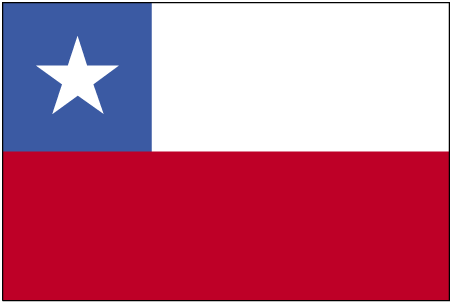Chilean Space Agency
 Chile joined the race for space in 2001 by launching its first-ever space agency. The Chilean Space Agency was to coordinate scientific research as well as provide a focus for companies interested in the commercial possibilities of space technology. In particular, the government wanted the agency to encourage the development of a Chilean satellite construction program. “Founding the agency is just the first step,” Aviation Undersecretary Nelson Hadad said 21 August 2001. “There are still a lot of decisions and a lot of work ahead. But the important thing is that, for the first time, we now have a national space agency that can begin a dialogue with other international agencies.”
Chile joined the race for space in 2001 by launching its first-ever space agency. The Chilean Space Agency was to coordinate scientific research as well as provide a focus for companies interested in the commercial possibilities of space technology. In particular, the government wanted the agency to encourage the development of a Chilean satellite construction program. “Founding the agency is just the first step,” Aviation Undersecretary Nelson Hadad said 21 August 2001. “There are still a lot of decisions and a lot of work ahead. But the important thing is that, for the first time, we now have a national space agency that can begin a dialogue with other international agencies.”
Chile has previously been ineligible for international technology-sharing agreements because it lacked a representative organization. “Other countries in the region, such as Argentina, Brazil and Peru, already have space agencies, and we were getting left behind,” Hadad said.
Space was previously the exclusive responsibility of the country’s Air Force, but senior military figures realized that foreign space agencies and potential investors would only deal with a civilian-led organization. The Air Force will still retain some influence within the new agency, but the board of directors will be primarily composed of government officials, academics and businesspeople.
In its initial stages, the agency would not have any dedicated staff, and its work will be shared among officials from the Air Force and several government departments. Chile spends US$50 million every year on space products and on using other foreign-built satellites.
The agency conducted a feasibility Study of Satellite Communications for Chile. It looked at the technical feasibility, economic, financial and strategic, to recommend the implementation or any other viable alternative to the use of satellite communications to improve emergency communications in the country and support the community in times of crises, disasters and early warning, caused by natural and anthropic disasters or emergencies.
The Atacama Desert is known to be the dryest place on the planet. On it’s surface, the extreme temperature oscilates from -25°C (Winter on Ollagüe) to 45°C (under solar radiation in summer), very low humidity, high UV radiation and strong winds. These conditions make it very similar to the surface of Mars, being the primary reason for installing the complex Moon-Mars; an international scientific / technological complex which aims to conduct scientific research of protocols and testing of technological developments and applications associated with the exploration of Mars and the Moon.
The NANOSATELLITE project developed between the ACE and the University of Chile will be designed according to the CubeSat standard, standard design nanosatellite (1 to 10 kg), giving a lower release cost and more frequent. Standardized interfaces that enable market provides an efficient supply of components and services.
FIDAE, for more than thirty years, has been consolidated as the prime aerospace fair in Latin America and one of the main exhibitions worldwide. It is supported by the Chilean government and organized by the Chilean Air Force.
On 28 March 2016 a new meeting of the Space Council for Space Development [“Consejo de Ministros para el Desarrollo Espacial”] was held within the framework of the inauguration of the FIDAE 2016, the Minister of Transport and Telecommunications, Andrés Gómez- Lobo, announced the latest decisions taken by the agency that advises the President Michelle Bachelet, with regard to the development of public policies in space.
"This council has been working for several months to give Chile a more linked to the executive branch, an autonomous agency Space Agency, and we made the decision to incorporate into the future Ministry of Science and Technology, announced by President Bachelet" said Minister Gómez-Lobo, who also holds the position of president of the institution that currently represents our country in space issues.
The Space Council is composed of the Minister of Transport and Telecommunications, who presides, and the Ministries of Interior, Foreign Affairs, National Defense, Finance, General Secretariat of the Presidency, Economy, Development and Tourism, Social Development , Education, Agriculture and National Resources. The Executive Secretary of the Board is the Undersecretary of Telecommunications, Pedro Huichalaf. "In recent months we have analyzed the different options for progress in space development of our country. We are working with the Technical Advisory Committee in the development of public policy on space issues, "said Huichalaf.
Another important point that should be stressed in the field of space policy is that on February 29, 2016 the new decree regulating the Council of Ministers was published in the Official Journal. "Before that we had the digital theme and space in the same Council. This separation helps to strengthen the existing institutions, by giving a specific focus to the space issue," added the Minister of Transport and Telecommunications.
|
NEWSLETTER
|
| Join the GlobalSecurity.org mailing list |
|
|
|

